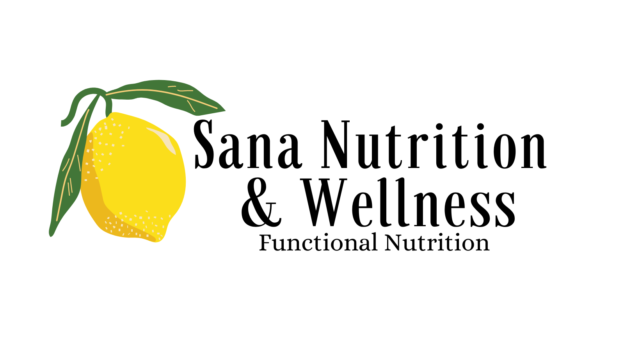As a registered dietitian, I firmly believe nourishing our bodies with wholesome, nutrient-dense foods is the foundation of good health. However, in today’s fast-paced world, even the healthiest diet can sometimes fall short of providing all the essential nutrients our bodies need to thrive. That’s why, despite my emphasis on food, I often recommend three key supplements to my clients: Vitamin D, omega-3 fatty acids, and Magnesium.

Vitamin D: The Sunshine Vitamin
Vitamin D, often called the “sunshine vitamin,” plays a crucial role in various bodily functions, including bone health, immune function, and mood regulation. While our bodies can produce Vitamin D when exposed to sunlight, many people still fall short of optimal levels, especially those who live in northern latitudes, spend most of their time indoors, or use sunscreen regularly.
Why Supplement Vitamin D?
- Limited Sun Exposure: With today’s indoor-focused lifestyles and concerns about skin cancer, many people aren’t getting enough sunlight exposure to produce adequate Vitamin D.
- Impaired Nutrient Utilization: A lack of essential minerals impairs our bodies’ abilities to use the Vitamin D we make from sunshine, further exacerbating deficiencies.
- Compromised GI Tract: Issues with our gastrointestinal tract can compound nutrient deficiencies, including Vitamin D.
- Risk of Deficiency: Studies have shown that a large percentage of the population, particularly those living in colder climates, are deficient in Vitamin D.
- Health Implications: Low Vitamin D levels have been linked to weakened immune function, poor bone health, and an increased risk of certain chronic diseases.
It is recommended to get your Vitamin D levels tested by a healthcare provider to determine the appropriate amount to supplement. The goal is to maintain levels between 50-80nmol/L.

Omega-3 Fatty Acids: Essential for Heart and Brain Health
Omega-3 fatty acids, found in fatty fish like salmon, flaxseeds, and walnuts, are essential for heart health, brain function, and overall well-being. These fatty acids, particularly EPA (eicosapentaenoic acid) and DHA (docosahexaenoic acid), play a crucial role in reducing inflammation, supporting cardiovascular health, and promoting optimal brain function.
Why Supplement Omega-3 Fatty Acids?
- Limited Dietary Intake: Despite the importance of omega-3 fatty acids, many people do not consume enough fish or other foods rich in these essential nutrients.
- Imbalance of Omega-3 to Omega-6: The modern Western diet tends to be high in omega-6 fatty acids, leading to an imbalance between omega-3 and omega-6 levels, contributing to inflammation and various health issues.
- Heart and Brain Health: Supplementing with omega-3 fatty acids has been shown to support heart health, brain function, and even mood regulation.
How much should you supplement?
How much omega-3 fatty acid should we supplement? I think it’s best to take 3g of high-quality omega-3 fatty acid daily. A helpful tip is to take it at night to avoid experiencing fish burps. Additionally, you can take it with your Vitamin D supplement to enhance absorption. Vitamin D is a fat-soluble vitamin and the fat in the Omega-3 will improve absorption.
(Try this Omega 3 or This one that also contains CoQ10)

Magnesium: The Mighty Mineral
Magnesium is an essential mineral involved in over 300 biochemical reactions in the body, including energy production, muscle function, and nerve signaling. Despite its importance, many people do not get enough magnesium from their diet, leading to many health issues.
Why Supplement Magnesium?
- Inadequate Dietary Intake: Due to soil depletion and modern agricultural practices, many foods are lower in Magnesium than they once were.
- Increased Need: Stress, certain medications, and health conditions can increase the body’s need for Magnesium.
- Common Deficiency: Studies suggest that a significant portion of the population may be deficient in Magnesium, which can contribute to muscle cramps, fatigue, and even anxiety.
(Try this Magnesium Glycinate )
How much should you supplement?
I would like to suggest taking 400mg of Magnesium per day. Various types of Magnesium can help support different bodily functions. You may read this article to help you decide which one is right for you, but it’s important not to overthink it. The most crucial thing is to consistently take Magnesium as it plays a vital role in many processes throughout the body!
The Food-First Approach: Why Supplements Are Sometimes Necessary
While I always emphasize the importance of a nutrient-rich diet, there are times when supplementation is necessary to ensure optimal health. Factors such as limited sun exposure, dietary restrictions, and soil depletion can make obtaining all the essential nutrients from food alone challenging. In these cases, supplements like Vitamin D, Omega-3 fatty acids, and Magnesium can fill the gap and support overall health and well-being.
As a registered dietitian I am passionate about empowering my clients to nourish their bodies with wholesome, nutrient-dense foods. However, I also recognize that supplements can play a crucial role in filling nutrient gaps and supporting optimal health, especially in today’s fast-paced world. By incorporating essential supplements like Vitamin D, Omega-3 fatty acids, and Magnesium into their routine, my clients can ensure they are giving their bodies the support they need to thrive. Remember, supplements are just that – supplements to a healthy diet, not replacements for it. That being said, these supplements could help fill in some gaps!
Nutrition is such an important part of feeling well, reducing inflammation, and healing! Do you need support in making the necessary changes to reduce inflammation and start feeling amazing? I’m here to help! Click here to schedule a discovery call with me today!

This article contains affiliate links. Rest assured, I stand behind all the products recommended. These links support the creation of valuable content at no extra cost to you.




